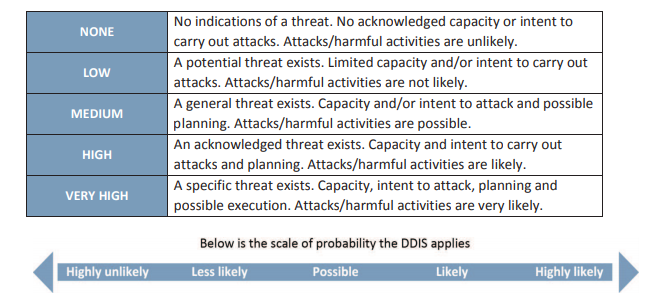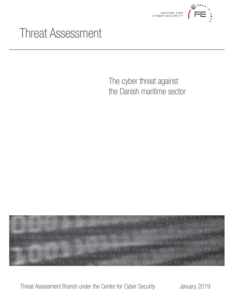As part of the launch of a cyber security strategy for shipping sector earlier this month, the Danish Ministry of Industry, Business and Financial Affairs published a threat assessment, providing an overview of the general cyber threat against the Danish maritime sector and informing the industry of threats in order to facilitate mitigation. This threat assessment could, for example, be included in the maritime sector’s work related to the Danish cyber and information security strategy.
As the maritime sector is a part of the critical infrastructure in Denmark, it is essential that public and private shipping companies are resilient against cyber attacks. The maritime sector consists of several components of varying complexity and with different characteristics and vulnerabilities.
The assessment focuses on the end goal of different cyber attacks, such as:
- Cyber espionage: Cyber espionage against the maritime sector may be motivated by financial interests. or security-related interests, for instance, foreign states may have a special interest in the opening of new shipping routes as well as shipping in disputed territorial waters.
- Cyber crime: In this assessment, cyber crime covers the uses cyber attacks in relation to financially motivated criminal activities.
- Cyber activism: Cyber activism is typically motivated by ideological or political beliefs, and cyber activists often target individuals or organizations they perceive as opponents to their cause
- Cyber terrorism: Even though militant extremists in a few instances have expressed an interest in launching cyber terrorism, the report assesses that they currently lack the capabilities to do so.

In line with the Danish Centre for Cyber Security’s (CFCS) Threat Assessment of January 2019, the strategy considers:
- the threat from cyber espionage to be very high. Foreign states can have both financial as well as political interests in conducting cyber espionage against private companies and public authorities;
- the threat from cyber criminals to be very high. Cyber criminals direct many different types of cyber attacks at private companies and public authorities in the maritime sector. In addition to the economic ramifications, cyber crime may, at worst, disrupt operations in the maritime sector;
- the threat of cyber activism to be low. Cyber activists are typically motivated by ideological or political beliefs and target individuals or organizations they perceive as opponents to their cause. The threat may suddenly increase as hackers can mobilize quickly in the wake of political events and incidents involving the maritime sector, such as transport of controversial goods or oil spills from ships; and
- the threat of cyber terrorism to be low. Even though militant extremists in a few instances have expressed an interest in conducting cyber terrorism, they currently lack the capabilities to do so.
Explore more herebelow:































































